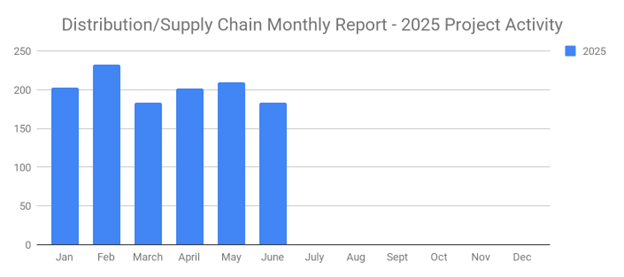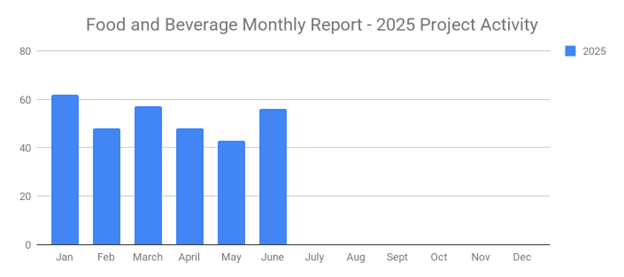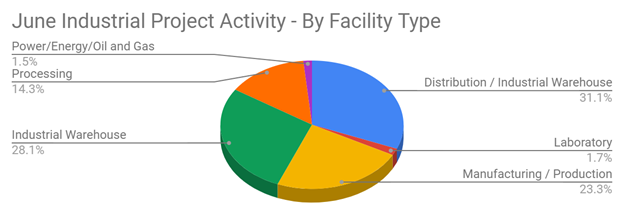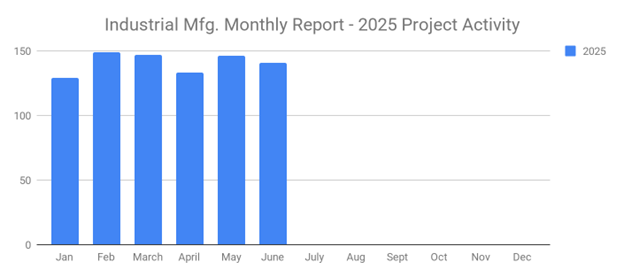
In the competitive industrial and manufacturing sectors, after-sales service is a non-negotiable strategy for retaining buyers and ensuring sustainable growth. Research reveals that acquiring new buyers costs five to seven times more than retaining existing ones. Industrial businesses that prioritize after-sales service—focusing on proactive support, maintenance, and training—build stronger relationships, encourage repeat business, and solidify their reputation as reliable partners.
A strong after-sales service strategy is essential to your B2B company's long-term success. Statistics show that it costs five to seven times more to acquire a new buyer than to retain an existing buyer. Existing buyers are already familiar with your B2B company, so they require less nurturing to convert. Turning a blind eye to after-sales service, however, may harm your B2B company's buyer retention rate. Some of your B2B company's buyers may leave in favor of a competitor. You can keep them happy by offering a strong after-sales service that addresses all of their needs.
This guide explores the key components of an effective after-sales service strategy and explains how it can strengthen buyer relationships, improve retention, and ultimately boost your company’s revenue.
What Is After-Sales Service?
After-sales service refers to all support and activities provided to buyers after a sale. For industrial and manufacturing companies, this includes assisting buyers with equipment installation, addressing operational challenges, and offering ongoing training.
Key components of after-sales service include:
-
Proactive Customer Support: Helping buyers navigate complex products like industrial automation systems.
-
Maintenance Services: Ensuring optimal performance of equipment such as forklifts or compressed air systems.
-
Training Programs: Empowering buyers to maximize the value of their purchases.
-
Follow-Ups: Building long-term relationships by addressing post-purchase concerns.
-
Feedback Collection: Identifying areas for improvement to better meet industrial buyers’ needs.
After-sales service, also referred to as post-sales support, encompasses all the activities and assistance provided to buyers after a purchase is made. This process ensures buyer satisfaction, addresses potential issues, and fosters a long-term relationship. Whether your focus is on industrial customer acquisition, manufacturing business development, or B2B product sales, an effective after-sales strategy ensures that your buyers remain loyal and engaged.
After-sales service is aimed at ensuring buyer satisfaction, addressing any issues or concerns, and maintaining a long-term relationship with the buyer. After-sales service can vary depending on the nature of the product or service, as well as the buyer's needs, but generally includes a few key components.
Why After-Sales Service Matters for Industrial Companies
-
Boosts Buyer Retention: Satisfied buyers are more likely to stay loyal, reducing churn.
-
Increases Repeat Business: Happy buyers are more inclined to make additional purchases.
-
Strengthens Industry Reputation: A commitment to after-sales service positions your business as a trusted partner.
-
Encourages Referrals: Satisfied buyers often recommend your business to other industry professionals.
The key components of after-sales service include:
Customer Support
Customer support is the foundation of after-sales service. As you may know, it involves assisting buyers by answering their questions and resolving any problems they encounter. You can't create a strong after-sales service strategy without customer support. Some buyers may not require any assistance, but others will require assistance. Providing them with a high level of customer support after they've made a purchase will result in happier buyers, thereby boosting your B2B company's buyer retention rate.
Industrial buyers often require assistance post-purchase, especially when dealing with complex machinery or systems. Proactive support ensures buyers feel valued and confident in their decision.
Examples:
-
Guiding buyers through the setup of material handling systems.
-
Providing troubleshooting for manufacturing software or control systems.
At the heart of after-sales service lies customer support. Buyers often seek assistance for a variety of reasons, such as:
-
Installing or configuring a product.
-
Resolving technical problems.
-
Addressing billing or payment issues.
-
Inquiring about upgrades or warranties.
Providing excellent customer support ensures that buyers feel valued and supported, which strengthens their trust in your company. Industries like manufacturing lead generation and industrial equipment sales benefit immensely from a proactive customer support strategy, as these buyers often require detailed, industry-specific assistance.
Warranties
After-sales service may include product and service warranties. If your B2B company offers warranties on its products or services, you'll need to honor them. Warranties may cover the cost of repairs or replacements. If a product or service fails during the warranty period, for instance, the buyer may file a claim. You'll need to honor these claims so that buyers remain happy. Whether it's for a product or service, warranty claims come after a buyer has made a purchase, making them part of after-service sales.
Offering warranties demonstrates confidence in your products and provides peace of mind to buyers. Promptly addressing warranty claims builds trust and strengthens relationships.
Example: In the manufacturing sector, a warranty covering downtime costs for a faulty compressor ensures buyer satisfaction and loyalty.
Warranties are an essential part of after-sales service. Offering warranties demonstrates confidence in your product or service while providing buyers with peace of mind. In sectors like industrial construction projects or manufacturing capex, warranties can be a deciding factor for buyers. Honoring warranty claims promptly and professionally will enhance buyer loyalty and keep them coming back.
Maintenance
Maintenance is another element of after-sales service. While there are countless B2B products on the market, many of them require maintenance. Industrial construction equipment, fleet vehicles and even commercial office furniture, for example, may require maintenance. Regular maintenance helps to ensure that B2B products such as these continue to perform at their optimal level. This can help to prevent product failures, downtime and disruptions in the businesses that use them.
Regular maintenance minimizes downtime and extends the lifespan of industrial products. By offering inspections, repairs, and updates, businesses can prevent disruptions and build lasting trust.
Example: Providing scheduled maintenance for forklift fleets or industrial HVAC systems ensures consistent performance.
Many B2B products, particularly those in industrial marketing services or manufacturing sales, require ongoing maintenance. Whether it’s fleet vehicles, industrial machinery, or office equipment, providing maintenance services as part of your after-sales strategy ensures optimal performance and reduces downtime for your buyers.
Maintenance includes inspections, cleaning, adjustments, updates and more. Activities such as these can help to identify and address potential issues before they escalate into major problems that render the product unusable. To seek maintenance for a product, buyers may reach out to your B2B company. Maintenance inquiries fall under the category of after-sales service because they occur after the buyer has made a purchase.
Regular inspections, updates, and repairs not only enhance the buyer experience but also present opportunities for upselling or cross-selling additional services or products.
Training
Buyers may require training after making a purchase. B2B products are oftentimes more advanced and complicated than consumer products. After all, they are designed specifically for businesses. After purchasing a B2B product, buyers may require training so that they can implement and use the product in their business's operations.
Industrial products often require specialized knowledge to operate effectively. Training ensures buyers maximize the value of their investment.
Example: A manufacturing company could offer webinars or in-person sessions on operating automated assembly lines.
B2B products often come with a learning curve. Providing buyers with the necessary training materials—such as tutorials, user guides, webinars, and one-on-one sessions—empowers them to maximize the value of their purchase. This is especially crucial for industries like industrial automation and control systems, where product complexity can deter buyers without adequate training.
You can provide training to buyers as part of your B2B company's after-sales service strategy. Training may include tutorials, product guides, knowledgebase, Q&As, explainer videos and one-on-one meetings.
Follow Ups
After-sales service gives you the chance to follow up with existing buyers. Some sales reps make the mistake of cutting off all communications with buyers after closing the deal. Once they've converted a prospect into a buyer, they will move on to the next prospect. Failure to follow up with buyers, however, is a serious mistake. Buyers may feel unappreciated, which may compel them to choose a competitor, instead.
Reaching out to buyers after a purchase demonstrates care and ensures satisfaction. Follow-ups also present opportunities for upselling or cross-selling complementary products.
Example: A follow-up with a buyer who purchased an industrial crane could include suggestions for accessories like hoists or control panels.
Effective follow-ups are a hallmark of excellent after-sales service. Reaching out to buyers after their purchase:
-
Shows that you value their business.
-
Provides an opportunity to address any concerns.
-
Strengthens relationships and fosters loyalty.
A simple follow-up call or email can go a long way in converting a one-time buyer into a repeat customer. For instance, companies specializing in material handling marketing or forklift sales can use follow-ups to suggest complementary products or services, further boosting revenue.
To keep existing buyers happy, you should follow up with them. Wait about one week after a buyer has made a purchase, at which point you can reach out to him or her. During this followup, ask the buyer about his or her recent purchase. If the buyer has any questions or concerns, you can address them during the followup. Followups such as this will build loyalty among your B2B company's audience. Buyers will experience a higher level of satisfaction with your B2B company, so they'll become more loyal.
Feedback
Want to acquire feedback from existing buyers? Feedback can provide invaluable insights into the strengths and weaknesses of your B2B company and its products or services. You can use it to make the necessary adjustments for a higher level of service, enhance your B2B company's offerings and retain more buyers.
Feedback provides actionable insights into buyer needs and product performance. Actively seeking input from industrial buyers strengthens relationships and informs future improvements.
Example: Requesting feedback on the efficiency of recently installed robotics systems helps refine future offerings.
Gathering feedback is a powerful way to improve your offerings and services. Buyers’ insights can reveal areas of improvement and help you fine-tune your products to better meet their needs. Feedback also strengthens buyer relationships, as it shows that their opinions matter.
Acquiring feedback, of course, is an after-sales service process. You can't expect a buyer to provide useful feedback related to a product or service until he or she has purchased and used the product or service. Only after using the product or service will a buyer know how it works and whether there are ways to improve it. Regardless, you should include feedback in your B2B company's after-sales service strategy. Reaching out to existing buyers to solicit feedback will prove helpful in optimizing your B2B company's operations.
Feedback is especially important in sectors like manufacturing lead generation, where buyer satisfaction directly impacts repeat business and referrals.
Account Management
Account management goes hand in hand with after-sales service. Many B2B companies assign sales professionals to their high-value accounts. Known as account managers, they are responsible for building and maintaining relationships with existing buyers. Account managers proactively engage with buyers, understand their needs and provide personalized support and guidance throughout the buyer's lifecycle. Some buyers may need assistance after purchasing a product or service, and account managers can provide this post-sales support.
Assigning dedicated account managers to high-value industrial clients ensures personalized attention and proactive support throughout the buyer lifecycle.
Example: An account manager could provide tailored solutions for a manufacturing plant expanding its production capacity.
For high-value accounts, personalized attention is key. Assigning account managers to these clients ensures they receive tailored support and guidance. Account managers act as a direct line of communication, addressing buyer concerns and helping them navigate post-purchase challenges.
In industries like industrial business development and manufacturing outsourced sales, account management is critical for maintaining long-term partnerships with major buyers.
Why After-Sales Service Matters
-
Boosts Buyer Retention: Satisfied buyers are more likely to stay loyal, reducing churn and increasing lifetime value.
-
Increases Repeat Business: Happy buyers are more likely to make repeat purchases, driving revenue growth.
-
Enhances Brand Reputation: A strong after-sales service strategy positions your company as trustworthy and customer-focused.
-
Encourages Referrals: Loyal buyers often recommend your business to others, amplifying your lead generation efforts.
Leveraging After-Sales Service for Growth
To maximize the impact of after-sales service:
-
Use CRM Tools: Automate follow-ups and track buyer interactions.
-
Train Teams: Equip your support and sales teams with industry-specific knowledge.
-
Leverage Data: Analyze buyer behavior to tailor services and identify opportunities for growth.
In Conclusion
After-sales service is a vital component of a successful B2B sales strategy. By focusing on customer support, warranties, training, and follow-ups, you can enhance buyer satisfaction, build loyalty, and drive repeat sales. Industries like industrial lead generation, manufacturing business development, and B2B appointment setting can particularly benefit from a robust after-sales approach.
Investing in after-sales service not only strengthens existing relationships but also creates opportunities for growth. When buyers feel valued and supported, they’re more likely to stay loyal and recommend your business to others.
For more insights into optimizing your sales and after-sales strategies, explore the resources provided by SalesLeads, a trusted leader in industrial customer acquisition and manufacturing sales development.
After-service sales includes many different processes. Customer support, warranties, maintenance, training, feedback, follow ups and account management are all classified as after-sales processes.
About SalesLeads, Inc.
SalesLeads, Inc. empowers B2B companies with innovative tools and strategies to streamline their sales processes and enhance engagement. Their specialized Prospecting Services are designed to uncover high-value opportunities, connect businesses with key decision-makers, and drive qualified appointments. With a focus on efficiency and precision, these services help companies across industries like manufacturing and industrial markets maintain a robust sales pipeline. By outsourcing prospecting to SalesLeads, businesses can free up their internal teams to focus on nurturing leads and closing deals. As a trusted partner in sales enablement, SalesLeads delivers the expertise and resources needed to achieve sustained growth.
What to learn more? Get in Touch
Latest Posts
-

June's New Distribution and Supply Chain Planned Projects Return to March’s 183 Confirmed Figure
-

Food and Beverage Rebounds with 56 New Planned Projects Igniting Growth After Decline
-

June 2025’s New Industrial Construction Projects Grew 7% Month-Over-Month
-

Q2 Industrial Manufacturing Soars 31% for Planned Projects Over $100M; June Planned Industrial Projects Hit 141

